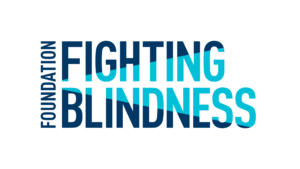Inherited Retinal Diseases (IRDs) are a diverse group of genetic disorders that affect the retina, the light-sensitive tissue at the back of the eye responsible for vision. These conditions are caused by mutations in specific genes that are crucial for retinal function. IRDs are progressive, meaning they worsen over time, and they can lead to varying degrees of vision loss, from mild impairment to complete blindness. The onset and severity of IRDs can differ depending on the specific genetic mutation involved, and symptoms can manifest at any stage of life, from infancy to adulthood.
One of the key challenges with IRDs is the difficulty in diagnosing the specific condition due to the wide variety of mutations that can lead to retinal disease. However, advancements in genetic testing have made it possible to identify the precise mutation causing the disorder, which is critical for personalized care and potential treatment options.

This test is performed using Next-Gen Sequencing (NGS) with additional Sanger sequencing as necessary. This panel has been validated to provide 99.64% coverage of all coding exons of the genes plus 10 bases of flanking non-coding DNA in all available transcripts along with other non-coding regions in which pathogenic variants have been reported in available databases. We define coverage as ≥20X NGS reads or Sanger sequencing.
Copy number variant (CNV) analysis of the NGS data is included. This panel has been validated to detect 92.86% of CNVs involving 1 exon and 100% of CNVs involving 2 or more exons.
Please note that analysis of RPGR exon 15 (commonly referred to as ORF15) has historically been difficult due to the highly repetitive, purine-rich sequence. However, saturating levels of capture-probes in ORF15 region have now enabled 100% sequencing coverage in the majority of cases. When NGS does not achieve full coverage or there is a variant detected by NGS that needs confirmation, then a specialized chemistry Sanger sequencing is utilized.
The NGS for this test also includes sequencing and analysis of three genes in the mitochondrial genome (MT-ND4, MT-ND6, MT-TL1) with an average read depth of >3,000x and a minimum acceptable read depth of 500x. Sensitivity for detection of low-level (4-10%) heteroplasmic single nucleotide variants is >99% based on validation studies. All reported mitochondrial variants are confirmed using a combination of long-range PCR and next generation sequencing.
What is the Program?
The My Retina Tracker® Program provides no-cost genetic testing and genetic counseling for individuals with a clinical diagnosis of an inherited retinal disease (IRD). Targeted familial variant testing is also available to blood relatives of individuals who receive a positive result through the Program and meet certain criteria. This testing program is sponsored by the Foundation Fighting Blindness, a nonprofit organization dedicated to finding treatments for IRDs, and Spark Therapeutics. The genetic testing is performed at PreventionGenetics and the third-party genetic counseling services are provided by InformedDNA.
Participants who undergo genetic testing with the My Retina Tracker Program’s 110-gene panel must:
*Participants with biological relatives who received informative tests results through the Program may qualify for familial variant testing through the My Retina Tracker Program at no cost.
Participants who undergo genetic testing with the My Retina Tracker Genetic Testing Program’s targeted familial variant testing must:
*Of note, the familial variants must be sequence-based (nucleotide substitutions and indels) and within the nuclear genome to qualify for free testing and the participant must meet the following criteria based on the inheritance pattern of the gene identified in the proband:
Eligible inherited retinal degenerative diseases include:

Collect a specimen in the collection tube. For information about ordering specimen kits, see Specimen Collection and Shipping section

At Spark Therapeutics, a fully integrated, commercial company committed to discovering, developing and delivering gene therapies, we challenge the inevitability of genetic diseases, including blindness, hemophilia, lysosomal storage disorders and neurodegenerative diseases. At Spark, a member of the Roche Group, we see the path to a world where no life is limited by genetic disease. For more information, visit www.sparktx.com, and follow us on Twitter and LinkedIn.